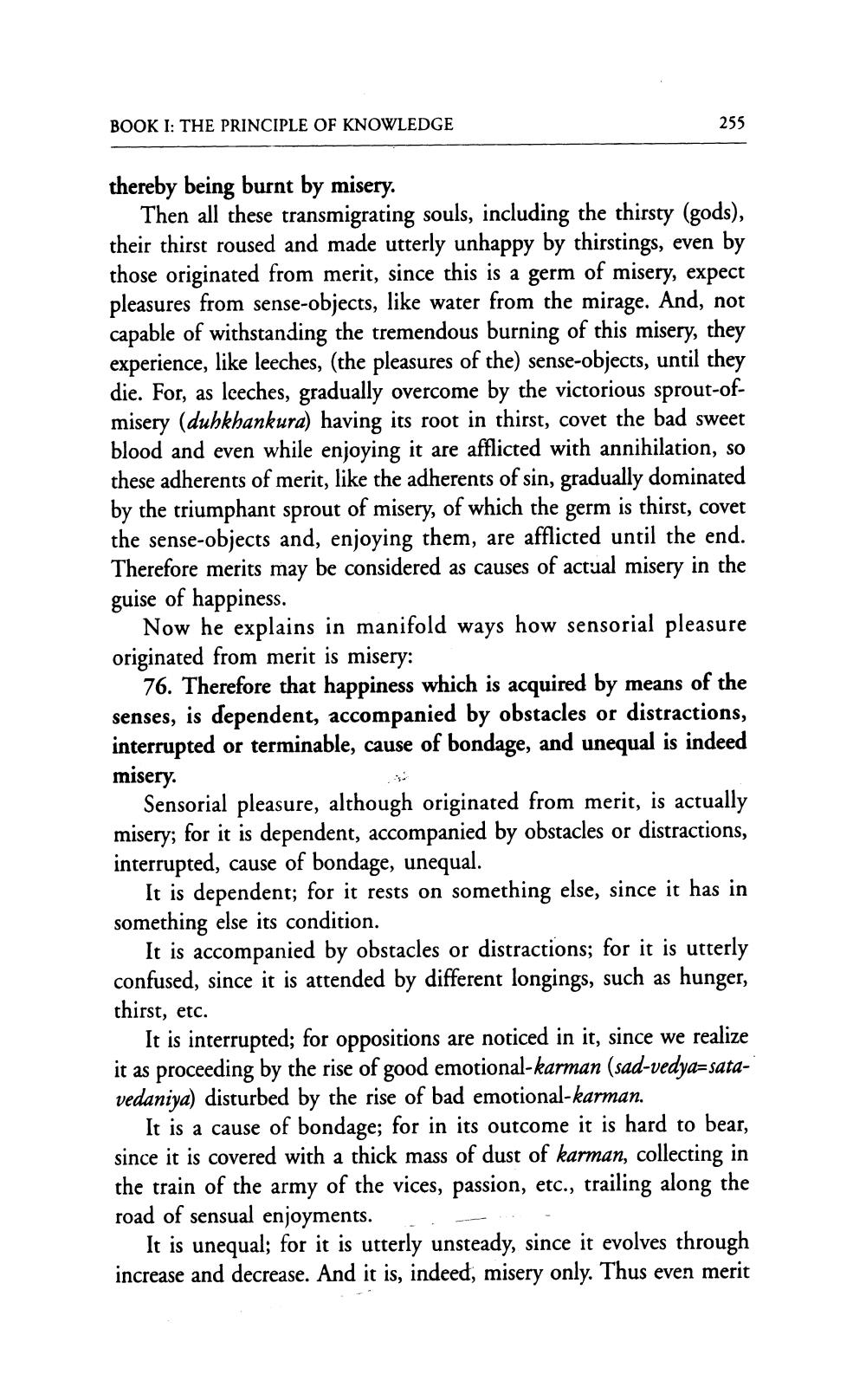________________
BOOK I: THE PRINCIPLE OF KNOWLEDGE
255
thereby being burnt by misery.
Then all these transmigrating souls, including the thirsty (gods), their thirst roused and made utterly unhappy by thirstings, even by those originated from merit, since this is a germ of misery, expect pleasures from sense-objects, like water from the mirage. And, not capable of withstanding the tremendous burning of this misery, they experience, like leeches, (the pleasures of the) sense-objects, until they die. For, as leeches, gradually overcome by the victorious sprout-ofmisery (duhkhankura) having its root in thirst, covet the bad sweet blood and even while enjoying it are afflicted with annihilation, so these adherents of merit, like the adherents of sin, gradually dominated by the triumphant sprout of misery, of which the germ is thirst, covet the sense-objects and, enjoying them, are afflicted until the end. Therefore merits may be considered as causes of actual misery in the guise of happiness.
Now he explains in manifold ways how sensorial pleasure originated from merit is misery:
76. Therefore that happiness which is acquired by means of the senses, is dependent, accompanied by obstacles or distractions, interrupted or terminable, cause of bondage, and unequal is indeed misery.
Sensorial pleasure, although originated from merit, is actually misery; for it is dependent, accompanied by obstacles or distractions, interrupted, cause of bondage, unequal.
It is dependent; for it rests on something else, since it has in something else its condition.
It is accompanied by obstacles or distractions; for it is utterly confused, since it is attended by different longings, such as hunger, thirst, etc.
It is interrupted; for oppositions are noticed in it, since we realize it as proceeding by the rise of good emotional-karman (sad-vedya=satavedaniya) disturbed by the rise of bad emotional-karman.
It is a cause of bondage; for in its outcome it is hard to bear, since it is covered with a thick mass of dust of karman, collecting in the train of the army of the vices, passion, etc., trailing along the road of sensual enjoyments.
It is unequal; for it is utterly unsteady, since it evolves through increase and decrease. And it is, indeed, misery only. Thus even merit




